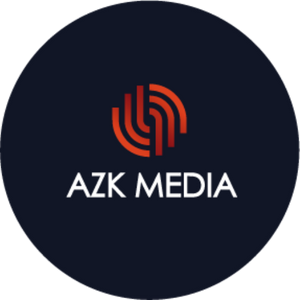
Drunk on Data? The Sobering Truth about the Death of the Third-Party Cookie

In a recent podcast with Paula Thomas, “Let’s Talk Loyalty”, experts from Cheetah discussed the cookie-less future, the role of gamification in loyalty, value exchange, and loyalty trends in the manufacturing space.
A sign of the times
This year’s 2022 Digital Consumer Trends Index further cements consumers' dislike of cookies. More than half (60%) of respondents in the U.K. said they don’t trust social media platforms with their data and 64% revealed that they believe cookie tracking is “creepy”. It feels like an invasion of privacy.
“Facebook ads feel more intrusive,” Paula pointed out, adding that when guests come on her show, they consistently share how people want rewards to come in ways that are more meaningful to them. They also desire rewards that are easy to access.
In that same report, 63% of consumers said they prefer to buy from brands that don’t advertise to them on Facebook.
We’re in this new era where consumers, in general, are very suspicious about the kind of personalised ads they’re getting on social media platforms. The industry, itself, has created a situation where there’s a lot of distrust with consumers. And as marketers, it’s up to us to figure out the best way forward in navigating this landscape.
The simple fact of the matter is, as marketers, we got drunk on data. But just because we collect things, doesn’t mean we should. With third-party cookies, we lost all sense of etiquette in doing things respectfully on behalf of our customers.
The role of gamification
The transactional part of loyalty programs has been played out. However, gamification is coming to light as an opportunity for brands to have fun with their customers. And COVID-19 is responsible for really accelerating this trend. It’s unsurprising when you think about the McKinsey Report, which revealed that seven years of digital acceleration happened within a matter of months thanks to the pandemic.
In many of the different segments that Cheetah works with, this period of digital acceleration happened because of COVID.
In segments like restaurants and bars, loyalty has been the way the industry has reinvented itself, in terms of how it not only engages with and rewards its customers, but also in how it serves them. It’s something I find really interesting.
Essentially, when you look at the role a loyalty program plays in acquiring new customers, it’s all about the value exchange. And with gamification, that becomes the fun piece.”
By doing experiences, brands, retailers and multiple industry segments can now take their unknown audience and convert them into a known audience in their database, establishing a direct relationship or that first handshake, so to speak.
The value exchange that you offer consumers is the hook for getting data and getting it into the marketing database. Loyalty programs have always been that vehicle for delivering value exchange.
As an example, Del Taco, recently launched a rewards loyalty program for the restaurant in partnership with Cheetah Digital - and it goes beyond what we typically see.
Right off the bat, Del Taco offers free tacos to consumers who sign up to its loyalty rewards program. It’s essentially for training purposes for the restaurant, but it’s that value exchange. The restaurant gets something, the consumer gets something in return. It’s a win-win for both.
We’re seeing brands reimagine the relationship they can have with consumers. Loyalty programs are starting to differentiate. They’re using experiences, points for purchases and gamification. They’re architecting rewards programs where consumers have to level up to higher and higher tiers to unlock more and more benefits. It’s fun and engaging, and I believe we’re going to start seeing much more of that.
Data collection in a privacy-first world
Loyalty programs are now becoming even more innovative as we move from transactional to relationship-oriented ones. Brands are increasingly creating these experiences that ask people about their attitudes, motivations, desires and feedback and then leveraging that data to have a one-to-one relationship with them.
This is where loyalty programs really drive data collection in a privacy-first world because you don’t have to snoop on consumers. Instead, you’re connecting with them and offering a value exchange in return for their engagement and data, using that to then personalise their experiences.
With the death of the third-party cookie, some of our customers are ready for the change. Others, however, are putting the pedal to the metal, playing catch up to hopefully, be in a better position when the change finally does take place.
Cheetah’s customer Starbucks is another great example of a brand that is sitting pretty in a great position to navigate changes in privacy. The popular coffee chain is basically insulated against these changes because of its loyalty program.
Starbucks’ loyalty program is so mature and so advanced that it captures a large proportion of its customer base. The brand has a very strong direct relationship with its customers because of its loyalty app. This protects it from any of these external market forces and changes around privacy and personalisation.
We are now going through a period where marketing norms are rebalancing. Things that seem so obviously sensible like building direct relationships with consumers, building our marketing databases, and taking control over our customer relationships are coming back into view.
It’s no longer about stealing data, spying on people, and then selling their data. Hats off to Google for standing up for consumer privacy and ushering us all on a better, more ethical journey forward.
Everyone needs to build first-party relationships. You need that direct data from consumers. It’s vital to everything you do moving forward as a marketer.
There are so many opportunities these days for big companies to go out and collect data. And we’re seeing them put a lot of interest in loyalty programs to do it because they don’t want to put out one campaign and collect a bunch of data. They want that ongoing relationship.
This loyalty framework gives them the ability to keep people coming back and engaging with them, creating real relationships with their brand. At the end of the day, that’s what it’s all about – creating relationships beyond the transaction, establishing loyalty, brand affinity, and a true value exchange.
Listen to the full podcast, episode 151 of Let's Talk Loyalty with Paula Thomas, here.










